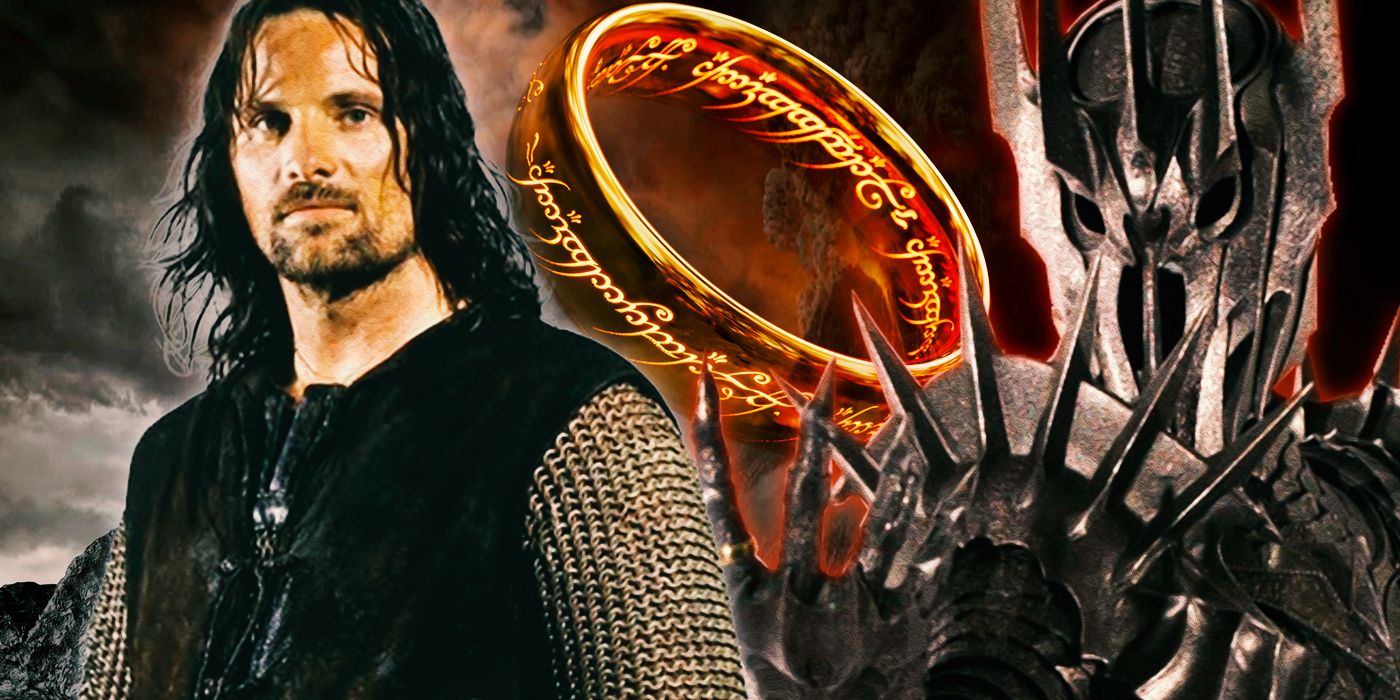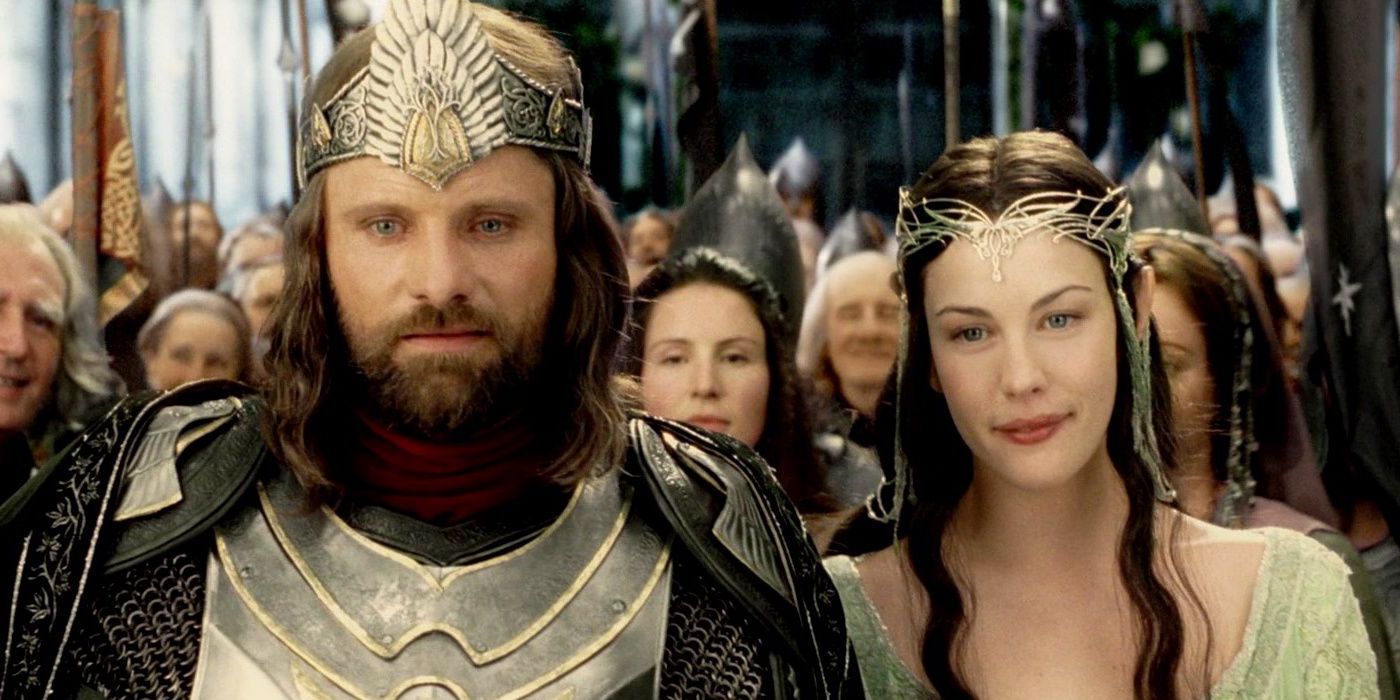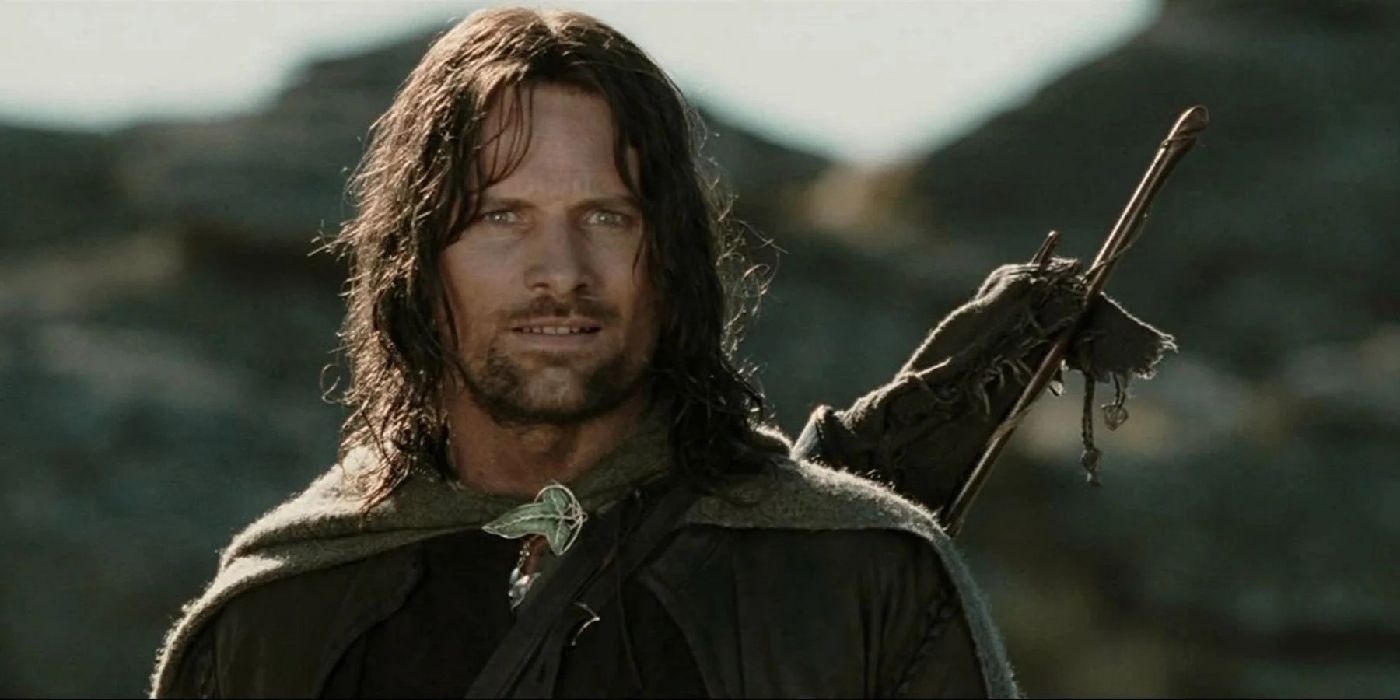Peter Jackson's movie trilogy The Lord of the Rings cemented its status as an instant classic in part with its faithfulness to author J.R.R. Tolkien's spirit and the comparative accuracy of its storyline. The three movies stuck close not only to the events of the celebrated fantasy novels but also to the fictional history and cultures of Middle-earth, which Jackson's visuals bought to life. And yet changes were sometimes necessary, not only to make the story compelling for large audiences but to give many of its characters a stronger dramatic arc than Tolkien did.
One of the biggest cases involves a central character in the trilogy. Aragorn, the exiled heir to the throne of Gondor whose return highlights the trilogy's climax, comes to that path differently in the books than he does in the movies. More specifically, Jackson portrays him as very reluctant to claim his birthright. Tolkien's Aragorn not only wished to be king but actively planned for it.
Tolkien Brought a Literary Tradition to Lord of the Rings' Aragorn
Tolkien drew heavily from both Arthurian legend and Shakespeare for his portrayal of Aragorn in The Lord of the Rings novels. The character's history is largely revealed in the Appendix, which has an entire section on Gondor's rulers. Aragorn's status as heir to the throne is kept secret at the request of his mother, who fears for his safety should the world know who he is. His father, Arathorn, was murdered by orcs when Aragorn was very young, so her fears are well-founded.
However, his travels through Middle-earth in secret are less exile than preparation for claiming his destiny. Tolkien describes his efforts to shore up the kingdoms of men against Sauron's forces, including campaigns with Gondor and Rohan. His travels also involve visits to Elven and Dwarven camps for similar purposes, making his secret heritage far more political than practical. Even his aid to Frodo -- particularly in the early parts of Fellowship, where he remains merely "Strider" -- is ultimately undertaken in support of his larger aim.
Peter Jackson's Lord of the Rings Needed to Give Aragorn More of an Arc
Tolkien kept much of Aragorn's history -- and some of his motives -- a mystery in the text itself. The movies didn't have that luxury and needed to bring more inherent drama to his story than the novels provided on their own. The most expedient solution was to make him far more reluctant to embrace his heritage than he was in the books. Instead, his wanderings become a form of exile, and while he continues to battle the forces of Sauron as he does in the books, he does so largely as an individual rather than an heir to the throne.
More specifically, the movies play up Aragorn's familial connection to Isildur, who had a chance to destroy the Ring after cutting it off Sauron's hand during the Battle of Dagorlad. Isildur succumbs to the Ring's temptation rather than casting it into the lava of Mount Doom -- allowing Sauron's spirit to survive and grow strong again -- and Aragorn fears that he himself will prove similarly unworthy when the time comes. His love for Arwen also plays a role in his reluctance -- if he doesn't become king, she can sail to the Undying Lands with the other elves, avoiding the dark fate Elrond spells out for her in the movie version of The Two Towers.
Aragorn slowly overcomes that reluctance in the course of the trilogy, first at the Battle of Helm's Deep at the end of The Two Towers -- where he vows to die fighting with his fellow humans -- and later by successfully "facing" Sauron via the Palantir early on in The Return of the King. The dramatic beats are well in keeping with Tolkien's overall tone, but they give the character his own doubts to wrestle with and conquer and provide new fans with better context about his life. It's a necessary change to make Aragorn more cinematic, as well as a sign of how elegantly the movies approach such a task.



